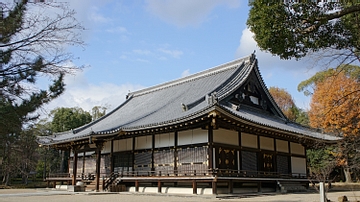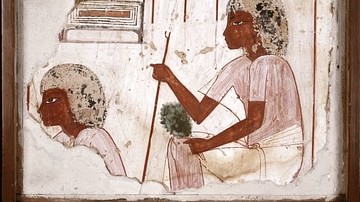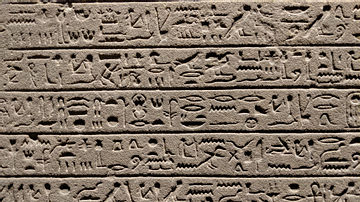Search Images
Browse Content (p. 983)

Image
Funerary Statue, El Purutal
Megalithic funerary statue at site referred to as El Purutal near San Agustín, Huila Department, Colombia. Created c. 1st to 10th century CE.

Image
Megalithic Funerary Statue at Mesita B
Megalithic funerary statue at Mesita B near San Agustín, Huila Department, Colombia. Created c. 1st to 10th century CE.

Image
Funerary Statues at Mesita B
Megalithic funerary statues at Mesita B near San Agustín, Huila Department, Colombia. Created c. 1st to 10th century CE.

Image
The Lady and the Unicorn: À Mon Seul Désir
The Lady and the Unicorn are six tapestries depicting a medieval lady in various poses. Each scene depicts one of the five senses; the sixth scene is labelled À Mon Seul Désir ("to my only desire") whose meaning is unclear. Historians attribute...

Image
Bell Tower, Ninna-ji
The bell tower and cherry blossoms of the Buddhist temple site of Ninna-ji, Kyoto, Japan. The temple was founded in 888 CE.

Image
Sanmon Gate, Ninna-ji
The Sanmon Gate of Ninna-ji, Kyoto, Japan. The gate, rebuilt in the 1630s CE, is one of the largest surviving examples in Japan.

Image
Main Hall, Ninna-ji
The Main Hll or Kondo of the Buddhist temple site of Ninna-ji just outside Kyoto, Japan. The temple was founded in 888 CE.

Image
Japanese Kyudo Archer
A 19th century CE illustration of an archer practising the Japanese martial art of kyudo. (Library of Congress)

Image
Egyptian Scribes
Tomb wall-painting of scribes: a fragmentary tomb-painting on plaster. The painting comes from the walls of an unknown Theban tomb, similar in style to, though not identical with, the mid-18th Dynasty tomb of Nebamen.

Image
Hieroglyphics from the Bakhtan Stela
Close-up of the Bakhtan Stela showing hieroglyphic writing. 21st Dynasty of Egypt, c. 1073-1064 BCE.